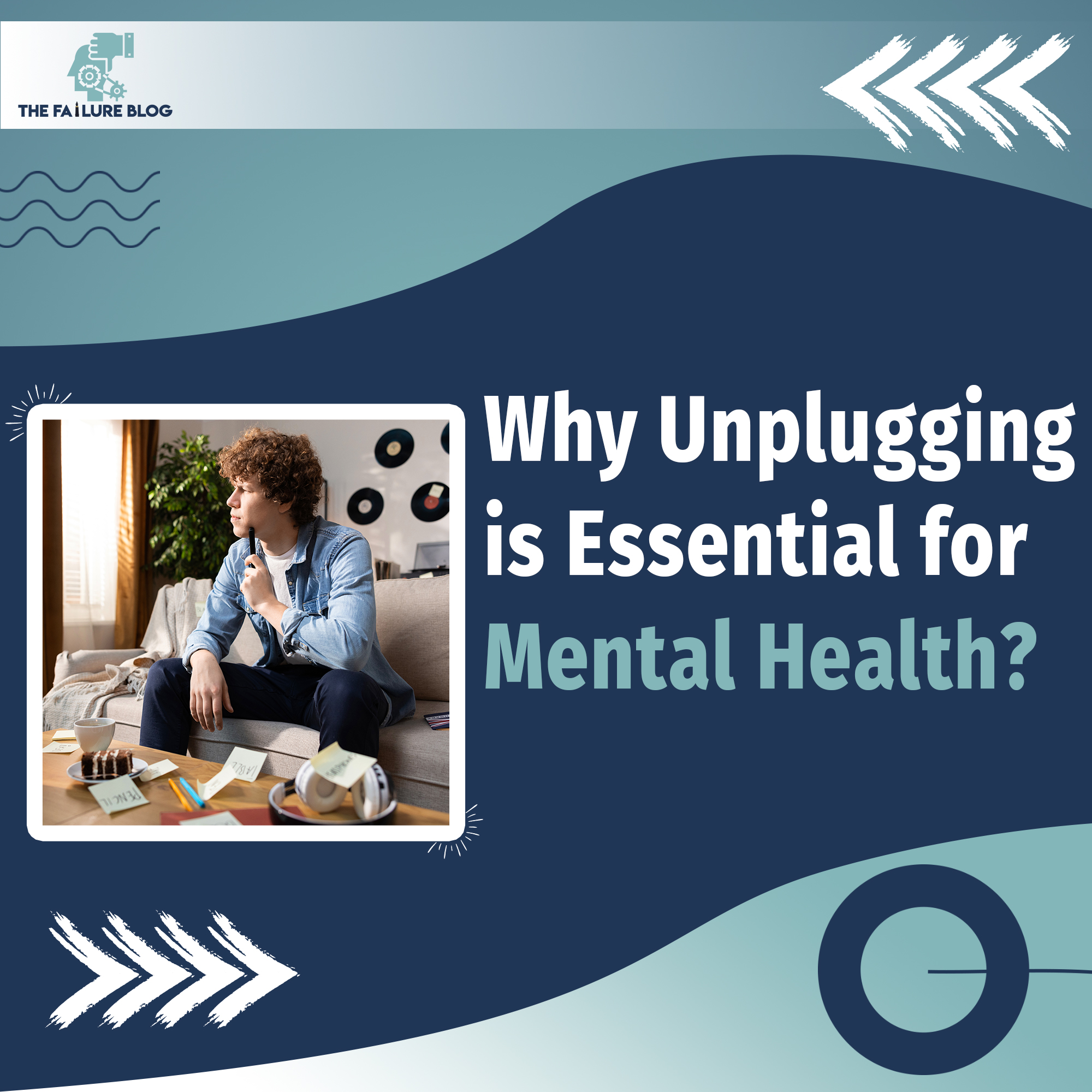
In our hyper-connected world, it’s easy to feel overwhelmed by constant notifications, social media updates, and endless emails. While technology offers countless conveniences, it also poses significant challenges to our mental health. Unplugging from these digital distractions isn’t just a luxury—it’s a necessity for maintaining our mental well-being. Let’s explore why taking a break from screens can profoundly benefit our mental health and how you can start integrating digital detox into your life.
The Overstimulation Effect
Our brains weren’t designed to process the relentless stream of information we encounter daily. Every ding of your phone or flash of a notification can increase your stress levels, making it harder to relax and concentrate. This constant barrage of stimuli can lead to feelings of anxiety and overwhelm. By unplugging, you give your mind a much-needed break from this overstimulation.
When you step away from screens, you allow your brain to reset. This pause helps reduce the stress hormone cortisol, promoting a more balanced mood and better focus. Without the constant interruption, you might find yourself feeling more present and at ease.
Improving Sleep Quality
One of the most significant impacts of screen time is on our sleep. The blue light emitted by phones, tablets, and computers interferes with the production of melatonin, the hormone that regulates sleep. This disruption can lead to poor sleep quality and insomnia, leaving you feeling drained the next day.
Unplugging from screens, especially before bedtime, helps your body produce melatonin naturally. Creating a tech-free bedtime routine can enhance your sleep quality, making you feel more rested and alert during the day. Try substituting screen time with relaxing activities like reading a book or practicing meditation to wind down before bed.

Enhancing Focus and Productivity
Have you ever found yourself endlessly scrolling through social media or responding to emails, only to realize hours have passed? This kind of mindless scrolling not only wastes time but can also erode your productivity. The constant interruptions from notifications can break your concentration and make it difficult to stay focused on tasks
When you unplug, you create an environment conducive to deep work. Without the constant ping of notifications, you can devote more time and energy to meaningful tasks. By setting specific times for checking emails or social media, you can better manage your time and boost your productivity.
Fostering Creativity and Personal Growth
Unplugging from digital distractions can unlock your creativity and fuel personal growth. Without the constant input of information from screens, you give your brain the freedom to wander and think creatively. This downtime can lead to new insights, ideas, and hobbies you might not have discovered otherwise. Engaging in offline activities, such as drawing, writing, or exploring nature, allows you to tap into your creative potential and foster a deeper connection with your passions. Embrace these moments of solitude as opportunities to grow and develop skills that enrich your life beyond the digital realm.
Strengthening Real-Life Connections
While digital communication keeps us connected, it can sometimes replace face-to-face interactions. Spending too much time online can lead to social isolation and weaken your real-life relationships. Unplugging provides an opportunity to reconnect with those around you, fostering deeper and more meaningful interactions.
Engage in activities that promote real-life connections, such as having a meal with family or friends, joining a local club, or participating in community events. These interactions can enhance your sense of belonging and support your emotional well-being.
Encouraging Self-Reflection and Mindfulness
When we’re constantly plugged in, it’s easy to lose sight of our own thoughts and feelings. The endless stream of content can distract us from self-reflection and mindfulness. Unplugging gives you the space to focus inward and explore your own needs and desires.
Taking time away from screens allows you to practice mindfulness and self-reflection. You might find that journaling, meditating, or simply spending time in nature helps you reconnect with yourself and gain clarity. These practices can lead to greater self-awareness and emotional resilience.

Avoiding Digital Burnout
Digital burnout is a real phenomenon that occurs when we become exhausted by our online interactions. The pressure to constantly stay connected and respond quickly can lead to feelings of burnout and resentment. Unplugging serves as a form of self-care, helping to mitigate these effects.
Regular breaks from technology can help prevent digital burnout. Set boundaries for your screen time and schedule regular digital detox periods. This might mean designating certain hours of the day as tech-free zones or taking a full day off from digital devices each week
Digital Detox for Your Routine
Incorporating unplugging into your daily life doesn’t have to be drastic. Start with small changes to create a more balanced approach to technology use:
- Set Screen Time Limits: Use built-in tools on your devices to track and limit your screen time. This can help you become more mindful of your usage and prevent excessive time spent online.
- Create Tech-Free Zones: Designate specific areas in your home as tech-free zones. For example, keep your bedroom free of electronic devices to promote better sleep.
- Schedule Regular Breaks: Take short breaks throughout the day to step away from your screen. Use this time to stretch, go for a walk, or engage in a non-digital activity.
- Practice Mindfulness: Incorporate mindfulness practices into your routine. Activities like meditation, yoga, or simply taking deep breaths can help you stay grounded and reduce stress.
- Engage in Offline Activities: Explore hobbies and activities that don’t involve screens. Reading a book, cooking, or pursuing a creative project can provide a refreshing change from digital engagement.
Conclusion
Unplugging from technology is more than just a trend—it’s an essential practice for maintaining mental health in our digital age. By taking regular breaks from screens, you can reduce stress, improve sleep, enhance focus, strengthen real-life connections, and avoid digital burnout. Start integrating small changes into your routine to experience the benefits of a more balanced relationship with technology. Your mental health will thank you for it.





Leave a Reply